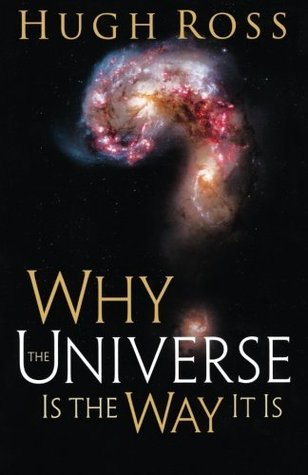More on this book
Community
Kindle Notes & Highlights
by
Hugh Ross
Read between
January 17 - January 21, 2022
Famed British theoretical physicist Stephen Hawking described this observation in A Brief History of Time, the bestselling science book of all time: It would be very difficult to explain why the universe should have begun in just this way, except as the act of a God who intended to create beings like us.[1]
American physicist Freeman Dyson expresses this same impression: The more I examine the universe and study the details of its architecture, the more evidence I find that the universe in some sense must have known that we were coming.[2]
The goal of such excavation goes beyond satisfying my own and others’ curiosity about the universe. I am firmly convinced that by discovering the intentionality behind the universe, we gain increasing insight into and confidence in the ultimate purposes for our own brief lives on this pale blue dot called Earth.
My intent in writing this book is to provide more than a measure of understanding of cosmic perplexities. I want readers to take away a renewed appreciation for the awesomeness of the universe and especially for the value—and eternal destiny—of their lives.
Somewhere around 50 billion trillion stars make their home in the observable universe.
Though a planet suitable for life’s survival could be assembled within 9.2 billion years after the cosmic creation event, nearly another billion years would be required to prepare that planet for primitive life. Beyond that time, it took another 3.5 billion years for the supernova eruptions, dense molecular clouds, gamma-ray bursts, and galaxy-merging events—as well as other dangerous conditions—to subside enough for advanced life and civilization to survive and thrive.
But when simultaneous “coincidences” multiply, the “random accident” interpretation grows less and less plausible and reaches a point at which it must be abandoned. The fact that humanity pops up in the just-right time window for astronomers to observe the universe and all of its history and in virtually the only possible location within the vastness of the cosmos where these features can be seen (see chapter 5, pp. 79–89) lends credence to the idea that Someone wanted the cosmos to be observed for a particular reason.
One of life’s great frustrations is the lack of time, resources, and technology—not to mention mental capacity—to research and comprehend all the things we hunger to know, not just about things but also about people. Whatever our interests, aptitudes, or resources, the universe’s physics and dimensions place hard barriers on the quest to know and understand. No more than we can fathom its beauty can we appreciate all God has done or will do in the realm to come. As King Solomon declared, “Despite all his efforts to search it out, man cannot discover its meaning. Even if a wise man claims he
...more


